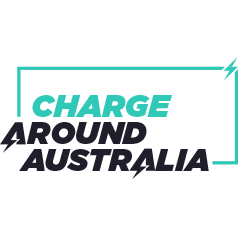

A man from Liverpool is going to drive around the entire coats of Australia in an electric car powered by a new kind of light-weight printed solar material.
Stuart McBain, 57, set off on his challenge on 2 September 2022 with a the three month trip ahead of him this autumn. The epic trip will take Stuart, the founder of Charge Around Australia (CAA), three months as the car needs ten hours of sunlight to fully charge, meaning he’s limited to driving for two hours a day. To charge the vehicle Stuart will take with him 18 solar sheets each 20m x 1m and weighing 11kg each, that can be rolled up and fitted into the boot of the car.
The Liverpool entrepreneur and founder of Charge Around Australia, has partnered with Professor Paul Dastoor, a Cambridge physicist, originally from Maidenhead, Berkshire and now living in New South Wales, Australia, who has developed highly innovative printed solar panels, which are ultra-flexible, ultra-thin and ultra-lightweight and incredibly cheap to produce (approximately £5 per square metre). The sheets, made largely from PET plastic – widely used to make convenience-sized soft drink bottles, can in turn be recycled, unlike traditional solar panels which end up in landfill.
To demonstrate the flexibility of this new technology, Stuart McBain, who owns his own accountancy practice, will undertake this unique 9,380 miles (15,097 km) trip with Thilo Kober, a Melbourne-based retired health scientist, who will drive the support vehicle. Their trip around the entire coast of Australia will aim to prove how portable the printed solar cell technology is, enabling charging off grid.
The pair will travel anti-clockwise, starting from Newcastle north of Sydney and visit 70 Australian schools along the way to roll out the solar panels and charge the car. The tour will take in the cities of Brisbane, Katherine, Perth, Adelaide, Melbourne, Canberra and Sydney as well as far more remote area.
“This is the most significant development in solar energy in a generation. We have the potential to deliver the world’s most affordable energy. We could change the way the world produces electricity. We have found a low-cost solution by harvesting the free energy from the sun. The trip around the coast of Australia will be a major milestone in the quest to solve the world’s energy crisis. This will be the first mobile demonstration of 2D printed solar technology that can be utilised to power a car. We are very excited to be pioneering this product which could be a game-changer when it comes to sustainable energy. The sheets can be printed at high speed and extremely low cost using a conventional printing machine and organic ink. The one Professor Dastoor has used for this project used to print wine labels.”
Professor Paul Dastoor, a world leader in organic electronics, based at Australia’s University of Newcastle explained: “The greatest issue the world is facing is energy production. We have billions of people who still have no access to energy or electrical power at all and the effects of climate change being felt world-wide. Imagine a world where any surface in any location can become an opportunity for sustainable energy generation. Charge Around Australia will help us bring attention to these issues and understand how new, adaptable technologies can change the script on these critical global challenges. This will be the first time our printed solar panels have been used to power an electric vehicle, let alone as a portable, retractable system that moves with the car, so it’s very much an intrepid venture in every sense. My team and I are incredibly excited to be working with Stuart to demonstrate thought-provoking and revolutionary concepts that help to decarbonise our world.”
Follow Stuart on LinkedIn and Twitter to follow him on his journey! For information on volunteering, sponsorship or supporting the project email sponsor@chargearoundaustralia .com.
Stuart will be joining us live from his Charge Around Australia at CHARGE Europe in Reykjavík!

